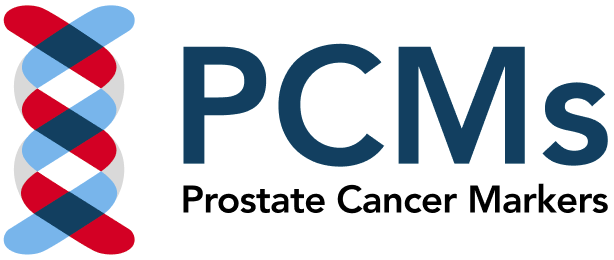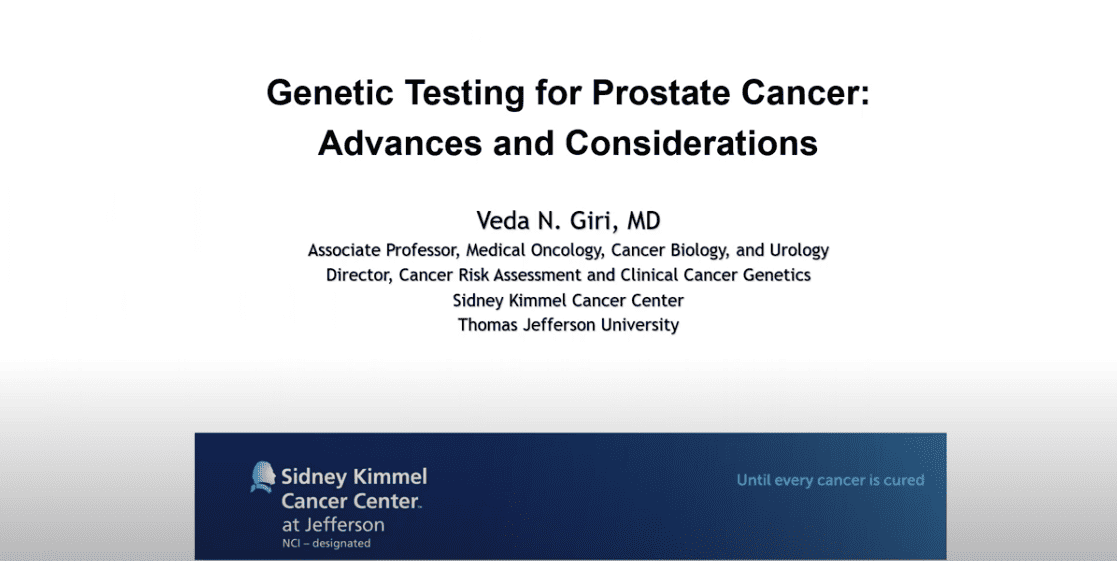ProstateNext germline testing helps assess patient risk of prostate cancer.
Germline genetic testing such as ProstateNext is becoming increasingly more important in diagnosing and treating prostate cancer. ProstateNext utilizes a blood or saliva sample to test for mutations in 14 genes that have been associated with hereditary prostate cancer. Hereditary cancer has been associated with aggressive forms of prostate cancer in up to 12% of men. By using a simple genetic test like ProstateNext, you can get more insights about your patient’s risk to help inform your recommendations on screening, early detection and treatment of prostate cancer.
ProstateNext Benefits
- The ProstateNext test can help you recommend a tailored approach to prostate cancer screening.
- The test can help you recommend measures to reduce prostate cancer risk for patients and family members who are at higher-risk due to inherited factors.
- For patients undergoing prostate cancer treatment, ProstateNext can help inform your treatment recommendations. For instance, prostate cancer patients who have BRCA1/BRCA2 or ATM could benefit more from PARP inhibitors.
- ProstateNext also helps identify family members who may be at higher risk for prostate cancer or other related cancers so that they can take proactive measures.
ProstateNext Physician Video
Learn more about why germline testing like ProstateNext is important for detecting and treating prostate cancer.
How to Order ProstateNext
Healthcare providers can visit the Ambry Genetics ProstateNext website here to order tests for your patients.
FAQs for Providers About ProstateNext
The ProstateNext test analyzes a blood or saliva sample to provide a full gene sequencing and looks for the deletion/duplication of 14 genes (including BRCA1 and BRCA2).
Test results for ProstateNext are presented in the following fashion (please note that you should always consult with your healthcare provider when reviewing test results):
- Positive: A mutation was found in at least one of your genes tested. Your risk of developing prostate cancer may be at increased risk compared to others.
- Negative: No mutations were found in any of your genes tested.
- Variant of unknown significance (VUS): At least one genetic change was found, but it is not clear if this may lead to an increased risk of cancer.
See a sample ProstateNext test result report and learn more about how to interpret them.
The ProstateNext test should be considered for men who
- Are diagnosed with prostate cancer before the age of 50
- Have metastatic prostate cancer (at any age)
- Have multiple primary cancers (e.g. prostate and male breast cancer)
- Have a personal history of prostate cancer and more than 1 family members* with early-onset breast cancer (under the age of 50) and/or invasive ovarian cancer
- Have a personal history of prostate cancer and >2 family members* with breast, pancreatic, or prostate cancer
*Family members are on the same side of the family.
Healthcare providers can expect to receive results from the ProstateNext test within 14-21 days.
Learn More About ProstateNext
Explore more information about the ProstateNext test.
Medical Studies Related to Germline Testing for Prostate Cancer
Diagnosing hereditary cancer predisposition in men with prostate cancer
This study looks at men with prostate cancer who underwent clinical multigene panel testing. The study found that multigene panel testing as the primary genetic testing approach for hereditary prostate cancer is effective and should be a consideration for germline testing in men with prostate cancer.
%s

